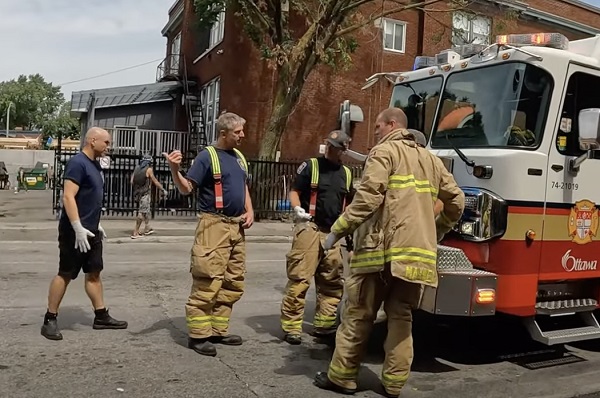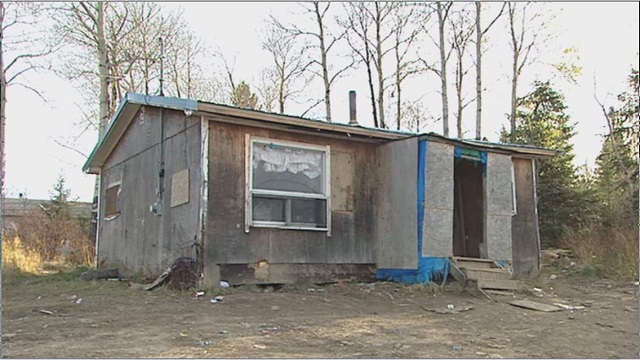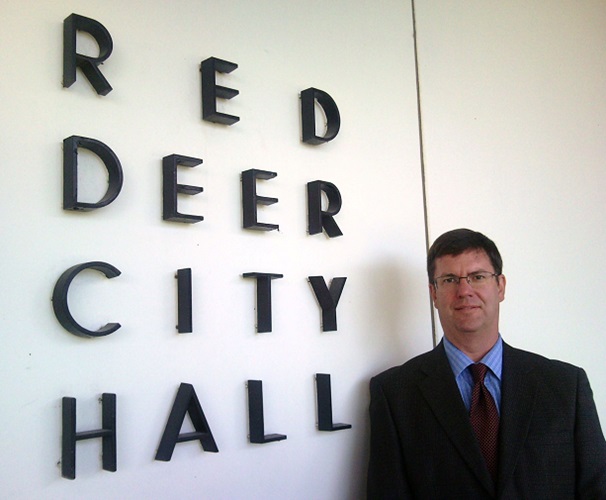Community
BDO Red Deer and Edmonton crews the best in Canada at “Driving Away Hunger”

Submitted by BDO
BDO surpasses 1 million meals for Drive Away Hunger campaign
BDO Canada exceeded 1 million meals to fight hunger, supporting Farm Credit Canada’s annual Drive Away Hunger campaign. The meals go directly to food banks and school feeding programs in Canada.
For the 12th year, BDO offices from across the country hosted events in their communities to help bring meals to the less fortunate. The firm raised a total of 1,011,000 meals this year alone.
Furthermore, the top five performing offices were:
- Alexandria, Ontario
- Pembina Valley, Manitoba
- Red Deer, Alberta
- Edmonton, Alberta
- Vancouver, British Columbia
“Drive Away Hunger is an important initiative we have been proud to be a part of for the past decade,” said Pat Kramer, Chief Executive Officer, BDO Canada. “This year, I am particularly proud of how the BDO team came together to raise over one million meals for local communities across the country. This is our BDO culture in action and it’s remarkable what we can achieve working together.”
To date, BDO has collected over 5,900,000 meals to help reduce hunger in communities across Canada.
“With 1.1 million visits to food banks in Canada every month, we know that hunger is an ongoing issue in our country,” said Christopher Hatch, Chief Executive Officer, Food Banks Canada. “We are so thankful for companies like BDO Canada who participate in Farm Credit Canada’s Drive Away Hunger Program and help make it a success.”
Established in 2004, Drive Away Hunger came to be when a Farm Credit Canada employee drove an open-cab tractor trailer around Ontario for eight days to collect almost 60,000 pounds of food. The campaign has grown to become the largest employee-led food drive in Canada, with 100 per cent of donations directly benefiting local charities.
To learn more about the 2019 FCC Drive Away Hunger campaign, visit www.fccdriveawayhunger.ca.
About BDO
BDO Canada LLP is a leading provider of professional services to clients of all sizes in virtually all business sectors. Our team delivers a comprehensive range of assurance, accounting, tax, and advisory services, complemented by a deep industry knowledge gained from nearly 100 years of working within local communities. As part of the international BDO network, we’re able to provide seamless and consistent cross-border services to clients with global needs. Over 73,000 people working out of more than 1,500 offices in over 160 countries, the network generates worldwide revenue of $8.1 billion.
BDO Canada LLP, a Canadian limited liability partnership, is a member of BDO International Limited, a UK company limited by guarantee, and forms part of the international BDO network of independent member firms. BDO is the brand name for the BDO network and for each of the BDO member Firms.
About Farm Credit Canada
FCC is Canada’s leading agriculture lender, with a healthy loan portfolio of more than $33 billion. Our employees are dedicated to the future of Canadian agriculture and its role in feeding an ever-growing world. We provide flexible, competitively priced financing, management software, information and knowledge specifically designed for the agriculture and agri-food industry. As a self-sustaining Crown corporation, our profits are reinvested back into the agriculture and food industry we serve and the communities where our customers and employees live and work while providing an appropriate return to our shareholder. Visit fcc.ca or follow us on Facebook, LinkedIn, and on Twitter @FCCagriculture.
Community
SPARC Red Deer – Caring Adult Nominations open now!

Red Deer community let’s give a round of applause to the incredible adults shaping the future of our kids. Whether they’re a coach, neighbour, teacher, mentor, instructor, or someone special, we want to know about them!
Tell us the inspiring story of how your nominee is helping kids grow up great. We will honour the first 100 local nominees for their outstanding contributions to youth development. It’s time to highlight those who consistently go above and beyond!
To nominate, visit Events (sparcreddeer.ca)

Addictions
‘Harm Reduction’ is killing B.C.’s addicts. There’s got to be a better way

From the Frontier Centre for Public Policy
B.C. recently decriminalized the possession of small amounts of illicit drugs. The resulting explosion of addicts using drugs in public spaces, including parks and playgrounds, recently led the province’s NDP government to attempt to backtrack on this policy
Fuelled by the deadly manufactured opioid fentanyl, Canada’s national drug overdose rate stood at 19.3 people per 100,000 in 2022, a shockingly high number when compared to the European Union’s rate of just 1.8. But national statistics hide considerable geographic variation. British Columbia and Alberta together account for only a quarter of Canada’s population yet nearly half of all opioid deaths. B.C.’s 2022 death rate of 45.2/100,000 is more than double the national average, with Alberta close behind at 33.3/100,00.
In response to the drug crisis, Canada’s two western-most provinces have taken markedly divergent approaches, and in doing so have created a natural experiment with national implications.
B.C. has emphasized harm reduction, which seeks to eliminate the damaging effects of illicit drugs without actually removing them from the equation. The strategy focuses on creating access to clean drugs and includes such measures as “safe” injection sites, needle exchange programs, crack-pipe giveaways and even drug-dispensing vending machines. The approach goes so far as to distribute drugs like heroin and cocaine free of charge in the hope addicts will no longer be tempted by potentially tainted street drugs and may eventually seek help.
But safe-supply policies create many unexpected consequences. A National Post investigation found, for example, that government-supplied hydromorphone pills handed out to addicts in Vancouver are often re-sold on the street to other addicts. The sellers then use the money to purchase a street drug that provides a better high — namely, fentanyl.
Doubling down on safe supply, B.C. recently decriminalized the possession of small amounts of illicit drugs. The resulting explosion of addicts using drugs in public spaces, including parks and playgrounds, recently led the province’s NDP government to attempt to backtrack on this policy — though for now that effort has been stymied by the courts.
According to Vancouver city councillor Brian Montague, “The stats tell us that harm reduction isn’t working.” In an interview, he calls decriminalization “a disaster” and proposes a policy shift that recognizes the connection between mental illness and addiction. The province, he says, needs “massive numbers of beds in treatment facilities that deal with both addictions and long-term mental health problems (plus) access to free counselling and housing.”
In fact, Montague’s wish is coming true — one province east, in Alberta. Since the United Conservative Party was elected in 2019, Alberta has been transforming its drug addiction policy away from harm reduction and towards publicly-funded treatment and recovery efforts.
Instead of offering safe-injection sites and free drugs, Alberta is building a network of 10 therapeutic communities across the province where patients can stay for up to a year, receiving therapy and medical treatment and developing skills that will enable them to build a life outside the drug culture. All for free. The province’s first two new recovery centres opened last year in Lethbridge and Red Deer. There are currently over 29,000 addiction treatment spaces in the province.
This treatment-based strategy is in large part the work of Marshall Smith, current chief of staff to Alberta’s premier and a former addict himself, whose life story is a testament to the importance of treatment and recovery.
The sharply contrasting policies of B.C. and Alberta allow a comparison of what works and what doesn’t. A first, tentative report card on this natural experiment was produced last year in a study from Stanford University’s network on addiction policy (SNAP). Noting “a lack of policy innovation in B.C.,” where harm reduction has become the dominant policy approach, the report argues that in fact “Alberta is currently experiencing a reduction in key addiction-related harms.” But it concludes that “Canada overall, and B.C. in particular, is not yet showing the progress that the public and those impacted by drug addiction deserve.”
The report is admittedly an early analysis of these two contrasting approaches. Most of Alberta’s recovery homes are still under construction, and B.C.’s decriminalization policy is only a year old. And since the report was published, opioid death rates have inched higher in both provinces.
Still, the early returns do seem to favour Alberta’s approach. That should be regarded as good news. Society certainly has an obligation to try to help drug users. But that duty must involve more than offering addicts free drugs. Addicted people need treatment so they can kick their potentially deadly habit and go on to live healthy, meaningful lives. Dignity comes from a life of purpose and self-control, not a government-funded fix.
Susan Martinuk is a senior fellow at the Frontier Centre for Public Policy and author of the 2021 book Patients at Risk: Exposing Canada’s Health Care Crisis. A longer version of this article recently appeared at C2CJournal.ca.
-

 COVID-1955 mins ago
COVID-1955 mins agoCDC Quietly Admits to Covid Policy Failures
-

 COVID-194 hours ago
COVID-194 hours agoJapanese study shows disturbing increase in cancer related deaths during the Covid pandemic
-

 Jordan Peterson2 days ago
Jordan Peterson2 days agoJordan Peterson slams CBC for only interviewing pro-LGBT doctors about UK report on child ‘sex changes’
-

 Alberta2 days ago
Alberta2 days agoDanielle Smith warns arsonists who start wildfires in Alberta that they will be held accountable
-

 Freedom Convoy2 days ago
Freedom Convoy2 days agoTrudeau’s use of Emergencies Act has cost taxpayers $73 million thus far
-

 Addictions2 days ago
Addictions2 days agoLiberal MP blasts Trudeau-backed ‘safe supply’ drug programs, linking them to ‘chaos’ in cities
-

 Frontier Centre for Public Policy2 days ago
Frontier Centre for Public Policy2 days agoThe Smallwood solution
-

 Agriculture2 days ago
Agriculture2 days agoBill C-282, now in the Senate, risks holding back other economic sectors and further burdening consumers






